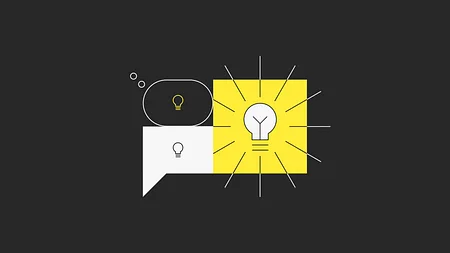UK Banking: How Are You Sleeping?
If you’re a banker, particularly a retail banker, last year was like the longest pre-fight build up we’ve ever seen. Unless you’ve been living under a rock, you will know that this year four new challenger banks will finally come to the UK market in the form of Monzo, Atom, Starling, and Tandem. They were the constant drum beat in the background while you were making your roadmaps and planning your transformations; the constant understanding that winter was coming.
Aren't Customers Satisfied, Though?
At 11:FS we talk a lot to our clients about the answers you get if you ask customers the wrong questions. Co-Founder Jason Bates says often that "If you ask most customers about their banks, they are relatively satisfied." There is a sort of Stockholm Syndrome going on. If we look at this Which? study from the end of last year, you can see this in practice. Overall customer scores are worked out using a combination of overall satisfaction and the likelihood that the respondents will recommend their bank to a friend. Companies need at least 30 responses to be given a rating. [caption id="attachment_59609" align="aligncenter" width="708"] Which? - Best and worst banks - December 2016[/caption]
Now from the above, you conclude that banks are doing okay right? Lets move further in.
Which? - Best and worst banks - December 2016[/caption]
Now from the above, you conclude that banks are doing okay right? Lets move further in.
People Aren't Switching
The challenge of these new challenger banks is no one is really switching. In the US, with the introduction of banks like Moven in 2011, we have seen a disappointing level of movement to these brands. This has forced them to become more like SaaS PFM players than serious challenger bank brands. In the UK, though, the Current Account Switch Service is designed to make moving from one bank or building society to another as pain-free as possible. It’s a free service that promises to move all payments from an old account to your new account within seven working days. More than 800,000 people have switched banks via the current account switch scheme this year, according to the latest figures. Payments service BACS found that there were 234,359 switches in the last quarter alone. The table below shows how many personal customers, small businesses and small charities have switched to and from banks and building societies using the switching service during this period. Bear in mind that these figures are six months in arrears so aren't really in tune with what’s happening with current accounts right now, but shows that people are willing to use this service. If you couple this usage with the UK government's increase of media spending to raise awareness of this service, its reliability, and the relative ease of switching, then a scene is very well set.
If you couple this usage with the UK government's increase of media spending to raise awareness of this service, its reliability, and the relative ease of switching, then a scene is very well set.
Let's Learn From Insurance
Here is a funny story. The first insurance aggregator was launched in 2002. I remember it well, being in that industry. Prior to this only about 1% of insurance had been placed online. Aggregators didn't initially take off as a roaring success, with low natural traffic. It wasn't until the aggregators started to spend significantly above the line that they changed the industry. In 2003, the number of insurance placed online had risen to almost 10%. Today upwards of 75% of motor insurance is placed online, with the majority of that business coming from aggregator sites. The aggregators, coupled with the insurers level of inability to innovate, have cost the insurance industry enormously in terms of the unnecessary competitiveness. Where there was at best a tenuous relationship between the market structure and profitability prior to 2002, after 2002 as competition increased, profitability decreased with a correlation of almost -96%. This is only natural as insurers are no longer competing on brand, marketing, service or other intangibles to the same extent; rather, they are competing almost solely on price and their position on the aggregators’ screens.So Whats Going To Happen?
Well, this is the hard part to predict. We have an apathetic general customer base who are just looking for the best deal, a government doing all it can to increase switch, and four incredibly customer-centric banks coming into the market. Having spent time with the Monzo, Atom, Starling, and Tandem teams, one thing is very clear. The services they are delivering are fundamentally different to those from the banks currently in the market. In the case of Monzo, with whom I've been a customer for a year, the manner in which they give me a collection of services makes me think about them as a brand in a very different way to any bank I've had before. Monzo is not another card I have in my wallet. They have done everything possible, as their customer over the last year, to make me love them and their brand and I do. In fact, it isn't just me. 100,000 other people do also and it isn't just FinTech geeks like us. I've started to witness my non-FinTech friends bragging about their new Monzo hot coral-coloured cards on Facebook also! One thing I hope the new challenger banks remember, though, is that aggregators didn't matter until they mattered to my mum and the only way that happened was through adequate levels of above the line marketing spend. If they market well and enter the psyche of the general public then with all the other elements of infrastructure in place in the UK, the future for these challenger banks is pretty hot. Hot coral for me, that is.




